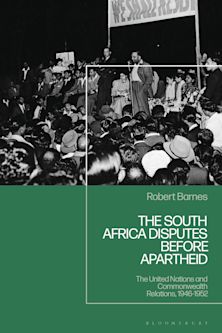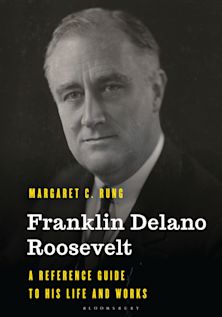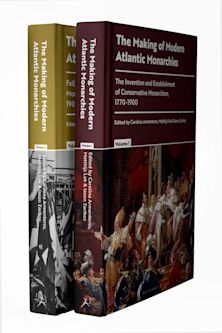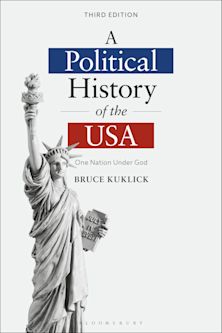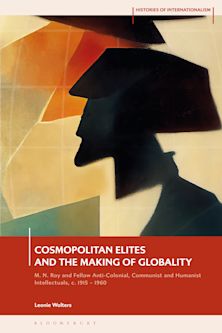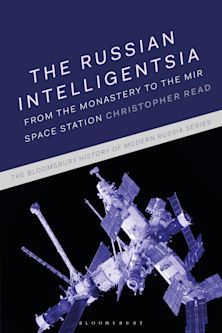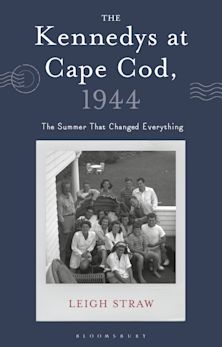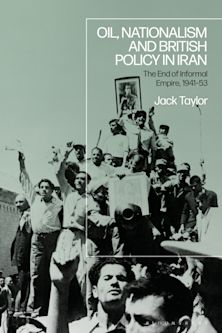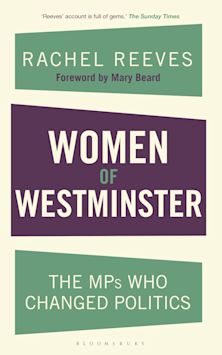The "New Man" in Radical Right Ideology and Practice, 1919-45
The "New Man" in Radical Right Ideology and Practice, 1919-45
This product is usually dispatched within 10-14 days
This title is available for subscription
- Delivery and returns info
-
Free UK delivery on orders £30 or over
Description
Bringing together an expert group of established and emerging scholars, this book analyses the pervasive myth of the 'new man' in various fascist movements and far-right regimes between 1919 and 1945. Through a series of ground-breaking case studies focusing on countries in Europe, but with additional chapters on Argentina, Brazil and Japan, The "New Man" in Radical Right Ideology and Practice, 1919-45 argues that what many national forms of far-right politics understood at the time as a so-called 'anthropological revolution' is essential to understanding this ideology's bio-political, often revolutionary dynamics. It explores how these movements promoted the creation of a new, ideal human, what this ideal looked like and what this things tell us about fascism's emergence in the 20th century.
The years after World War One saw the rise of regimes and movements professing totalitarian aims. In the case of revolutionary, radical-right movements, these totalising goals extended to changing the very nature of humanity through modern science, propaganda and conquest. At its most extreme, one of the key aims of fascism – the most extreme manifestation of radical right politics between the wars – was to create a 'new man'. Naturally, this manifested itself in different ways in varying national contexts and this volume explores these manifestations in order to better comprehend early 20th-century fascism both within national boundaries and in a broader, transnational context.
Table of Contents
Introduction: Building Illiberal Subjects: The New Man in the Radical Right Universe, 1919-45, Jorge Dagnino (Universidad de los Andes, Chile), Matthew Feldman (Teesside University, UK) and Paul Stocker (Richmond, the American International University in London, UK)
Part I - Inaugurating the Radical Right 'New Man' in Fascist Italy
1. Totalitarian Pedagogy and the Italian Youth, Luca La Rovere (University of Perugia, Italy)
2. Biotypology and Eugenics in Fascist Italy, Francesco Cassata (University of Genova, Italy)
3. The Aviator as New Man, Fernando Esposito (Eberhard Karls University of Tübingen, Germany)
Part II - The New Man in Axis Europe
4. Eugenic Art: Hitler's Utopian Aesthetic, Gregory Maertz (St John's University, USA)
5. Army Educators and the Making of a “Total Man” in Late Fascist Croatia, Rory Yeomans (University of Oxford, UK)
6. The “Everyman” of the Portuguese New State during the Fascist Era, Rita Almeida de Carvalho (University of Lisbon, Portugal) and António Costa Pinto (University of Lisbon, Portugal)
Part III – The New Man in Radical Right Regimes beyond Europe
7. Peronism: The Consumerist Revolution and the New Argentinean, Alberto Spektorowski (Tel Aviv University, Israel)
8. Envisioning the New Man in 1930s Brazil, Aristotle Kallis (Keele University, UK)
9. Japan's Perennial New Man: The Liberal and Fascist Incarnations of Masamichi Royama, Roy Starrs (University of Otago, New Zealand)
Part IV: The 'New Man' in European Fascist Movements
10. Forging the “New Man” in Fascist Spain during the War and Its Aftermath, 1936-1948, David Alegre Lorenz (Autonomous University of Barcelona, Spain)
11. Portraits of the New British Fascist Man, Jeannette Baxter (Anglia Ruskin University, UK)
12. The Fascist New Man in France, 1919-1945, Joan Tumblety (University of Southampton, UK)
13. The Salience of “New Man” Rhetoric in Romanian Fascist Movements, 1922-1944, Roland Clark (University of Liverpool, UK)
Product details

| Published | 25 Jan 2018 |
|---|---|
| Format | Hardback |
| Edition | 1st |
| Extent | 320 |
| ISBN | 9781474281096 |
| Imprint | Bloomsbury Academic |
| Illustrations | 11 bw illus |
| Dimensions | 234 x 156 mm |
| Publisher | Bloomsbury Publishing |
Reviews

ONLINE RESOURCES
Bloomsbury Collections
This book is available on Bloomsbury Collections where your library has access.












